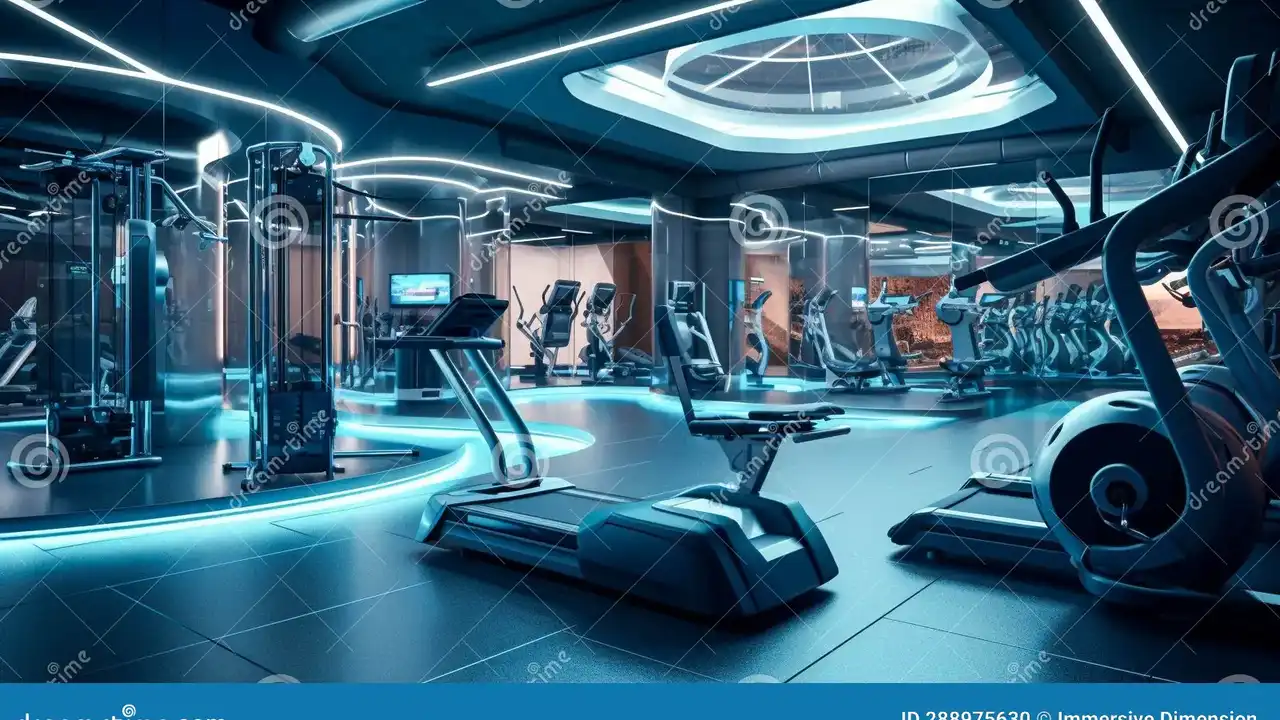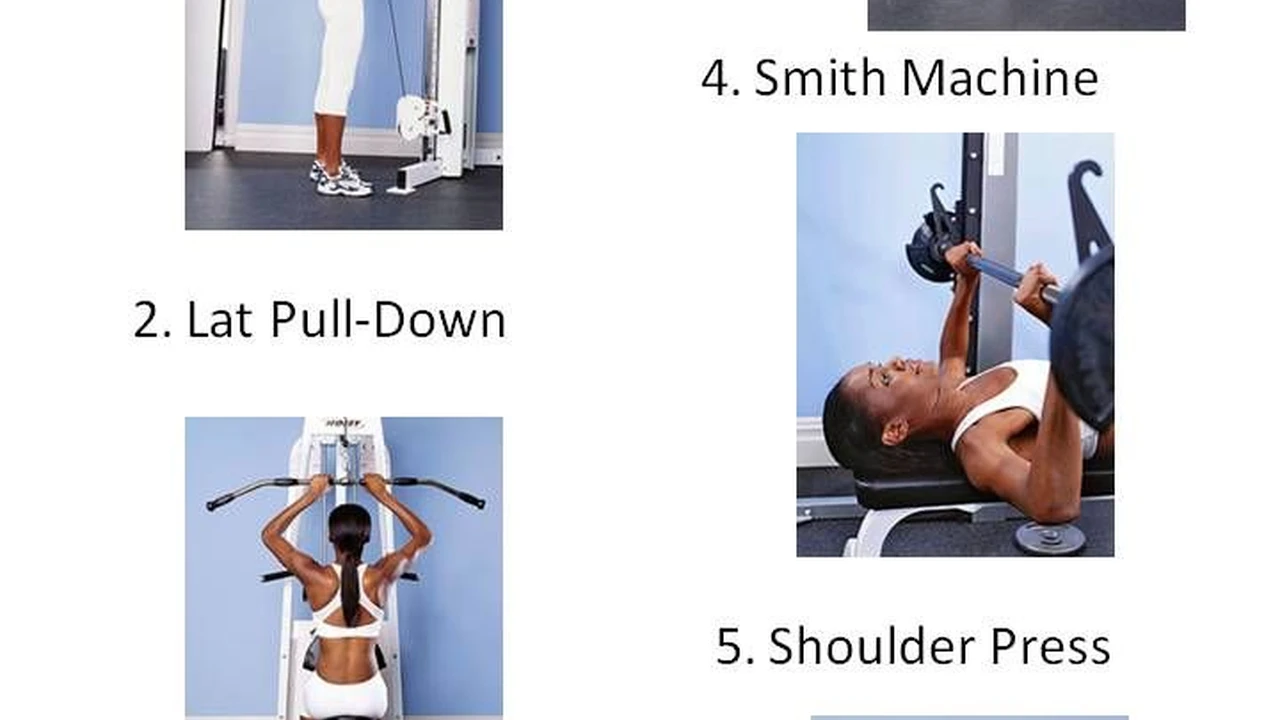The Future of Gym Fitness: Trends and Innovations
The fitness industry is constantly evolving, driven by technological advancements, changing consumer preferences, and a growing understanding of human physiology. From personalized training programs to cutting-edge equipment, the future of gym fitness promises to be more effective, engaging, and accessible than ever before. This article explores the key trends and innovations shaping the modern gym experience, highlighting specific products and strategies to help you stay ahead of the curve. We'll dive into the details of how technology, data, and innovative training methodologies are transforming the way we approach fitness.

The gym is no longer just a place to lift weights; it’s becoming a holistic wellness center, incorporating technology, personalized training, and a focus on overall well-being. Let's explore some of the most exciting developments in gym fitness.
Personalized Fitness Training Programs Powered by AI and Data Analytics
Gone are the days of generic workout routines. Artificial intelligence (AI) and data analytics are revolutionizing the way fitness programs are designed and delivered. These technologies analyze individual data points, such as fitness levels, goals, and even sleep patterns, to create highly personalized training plans.
Imagine an AI-powered app that tracks your workouts, monitors your heart rate, and adjusts your training intensity in real-time. This is the reality of personalized fitness. Companies like Fitbod and Future offer AI-driven training programs that adapt to your progress and provide customized guidance.
Fitbod: This app creates personalized workout routines based on your fitness level, available equipment, and goals. It tracks your progress and adjusts the difficulty of your workouts over time. Pricing starts at around $12.99 per month.
Future: This service connects you with a personal trainer who uses data from wearable devices to create personalized training plans and provide ongoing support. It's a more premium option, with prices starting around $149 per month.
The benefit of these programs is that they can significantly increase your adherence to the workout schedule, optimizing results and minimizing risk of injury.
Wearable Technology Integrating Biometric Data for Optimized Performance
Wearable technology, such as smartwatches and fitness trackers, is becoming increasingly sophisticated. These devices can now track a wide range of biometric data, including heart rate, sleep quality, and even stress levels. This data can be used to optimize training and recovery.
For example, a smartwatch can monitor your heart rate during a workout and alert you if you're pushing yourself too hard or not hard enough. It can also track your sleep quality and provide insights into how you can improve your rest.
Apple Watch Series 8: A popular choice, offering comprehensive fitness tracking, including heart rate monitoring, ECG, and blood oxygen saturation. It also integrates seamlessly with the Apple ecosystem. Prices start around $399.
Garmin Forerunner 955: Designed for serious athletes, this watch offers advanced training metrics, such as VO2 max, training load, and recovery time. It also has built-in GPS and long battery life. Prices start around $499.
The constant stream of data allows users to make informed decisions about their training, recovery and nutrition, leading to improved performance and overall health.
Virtual Reality VR Fitness Immersive Workout Experiences
Virtual reality (VR) is transforming the way people exercise, making workouts more engaging and enjoyable. VR fitness games can transport you to exotic locations, challenge you with interactive workouts, and even allow you to compete with other users.
Imagine cycling through the Swiss Alps, boxing in a virtual ring, or climbing a mountain without leaving your living room. VR fitness offers a unique and immersive workout experience that can help you stay motivated and achieve your fitness goals.
Meta Quest 2 with Supernatural: Meta Quest 2 is a popular VR headset, and Supernatural is a subscription-based fitness app that offers immersive workouts led by real trainers. It features a variety of exercises, including boxing, flow, and meditation. Meta Quest 2 costs around $399, and Supernatural subscription is around $19 per month.
Holodia: This platform turns rowing machines, ellipticals, and bikes into immersive VR experiences. Users can row through virtual rivers, cycle through futuristic cities, and more. Pricing varies depending on the hardware and subscription options.
The gamified nature of VR fitness makes exercise feel less like a chore and more like a fun activity, encouraging regular participation.
Functional Training Equipment Promoting Real World Movement
Functional training focuses on exercises that mimic real-world movements, improving strength, balance, and coordination. Functional training equipment is designed to challenge your body in multiple planes of motion, helping you develop functional fitness.
Examples of functional training equipment include kettlebells, resistance bands, medicine balls, and balance boards. These tools can be used to perform a wide variety of exercises that improve your ability to perform everyday tasks.
Kettlebells: Versatile tools for building strength, power, and endurance. They can be used for a variety of exercises, including swings, squats, and presses. A good quality kettlebell can range from $30 to $100 depending on the weight and material.
Resistance Bands: Portable and affordable, resistance bands are great for adding resistance to exercises and improving strength and flexibility. A set of resistance bands typically costs around $20 to $50.
BOSU Ball: A half-sphere balance trainer that challenges your stability and improves core strength. BOSU balls cost around $100 to $200.
Functional training offers a holistic approach to fitness, enhancing movement efficiency and reducing the risk of injuries in daily life.
Smart Gym Equipment Adjusting Resistance Based on Performance
Smart gym equipment uses sensors and algorithms to track your performance and adjust resistance in real-time. This allows you to get the most out of your workouts and avoid plateaus.
For example, a smart weight machine can automatically adjust the weight based on your strength level. It can also track your reps, sets, and form, providing feedback to help you improve your technique.
Tonal: A wall-mounted digital weight machine that uses electromagnetic resistance to provide a smooth and consistent workout experience. Tonal tracks your performance and adjusts the resistance in real-time. The initial investment is around $3,500, plus a monthly membership fee.
Tempo Studio: A smart home gym that uses AI to track your form and provide personalized feedback. Tempo Studio comes with a variety of weights and accessories. The studio costs around $2,500, plus a monthly membership fee.
Smart gym equipment offers a highly personalized and effective workout experience, making it easier to achieve your fitness goals.
Group Fitness Classes Evolving with Boutique Studios and Specialized Training
Group fitness classes are still popular, but they are evolving to meet the changing needs of consumers. Boutique fitness studios are offering specialized training programs that focus on specific fitness goals, such as HIIT, yoga, and cycling.
These studios often offer smaller class sizes and more personalized attention, creating a more supportive and engaging workout environment.
SoulCycle: A popular cycling studio that offers high-energy classes with motivating instructors. SoulCycle classes cost around $30 to $40 per class.
Barry's Bootcamp: A high-intensity interval training (HIIT) studio that combines running and strength training. Barry's Bootcamp classes cost around $30 to $40 per class.
YogaWorks: A yoga studio that offers a variety of yoga classes for all levels. YogaWorks classes cost around $20 to $30 per class.
The community aspect of group fitness, combined with specialized training, provides a powerful motivator for many individuals.
Recovery Technology Enhancing Muscle Repair and Reducing Soreness
Recovery is just as important as training. Recovery technology is designed to help you recover faster and reduce muscle soreness. This includes tools like massage guns, foam rollers, and compression therapy devices.
These tools can help to improve blood flow, reduce inflammation, and break up muscle knots, promoting faster recovery and reducing the risk of injury.
Theragun Pro: A powerful massage gun that can be used to relieve muscle soreness and improve recovery. Theragun Pro costs around $599.
Hypervolt: Another popular massage gun that offers a variety of speeds and attachments. Hypervolt costs around $349.
NormaTec Pulse 2.0: A compression therapy device that uses air pressure to improve blood flow and reduce inflammation. NormaTec Pulse 2.0 costs around $1,295.
Prioritizing recovery allows you to train harder and more consistently, leading to better results.
Nutrition Tracking Apps Providing Personalized Dietary Recommendations
Nutrition plays a crucial role in fitness. Nutrition tracking apps can help you track your calorie intake, macronutrient ratios, and micronutrient levels. These apps can also provide personalized dietary recommendations based on your fitness goals.
By tracking your nutrition, you can ensure that you are fueling your body properly for your workouts and supporting your recovery.
MyFitnessPal: A popular nutrition tracking app that allows you to track your calorie intake, macronutrient ratios, and exercise. MyFitnessPal offers a free version and a premium version with more features. The premium version costs around $9.99 per month.
Lose It!: Another popular nutrition tracking app that offers a variety of features, including barcode scanning, recipe logging, and personalized recommendations. Lose It! offers a free version and a premium version with more features. The premium version costs around $39.99 per year.
Cronometer: A nutrition tracking app that focuses on micronutrient tracking. Cronometer allows you to track your intake of vitamins, minerals, and other essential nutrients. Cronometer offers a free version and a premium version with more features. The premium version costs around $7.99 per month.
Understanding and managing your nutrition is essential for maximizing your fitness results.
Biometric Scanning Technology Measuring Body Composition and Metabolic Rate
Biometric scanning technology can provide detailed information about your body composition and metabolic rate. This information can be used to create personalized fitness and nutrition plans.
For example, a body composition scanner can measure your body fat percentage, muscle mass, and bone density. A metabolic rate test can measure how many calories you burn at rest.
InBody Scanners: These scanners use bioelectrical impedance analysis (BIA) to measure body composition. InBody scanners are commonly found in gyms and fitness centers. The cost of a scan varies depending on the location, but it typically ranges from $30 to $50.
Fit3D Scanners: These scanners use 3D imaging to create a detailed model of your body. Fit3D scanners can measure body fat percentage, muscle mass, and circumference measurements. Fit3D scans are typically offered at gyms and fitness centers. The cost of a scan varies depending on the location, but it typically ranges from $50 to $100.
Knowing your body composition and metabolic rate allows you to fine-tune your fitness and nutrition strategies for optimal results.
Gamification of Fitness Apps and Challenges Creating Engaging Experiences
Gamification is the use of game-design elements and game principles in non-game contexts. In the context of fitness, gamification can be used to make workouts more engaging and motivating.
Fitness apps and challenges are increasingly incorporating gamification elements, such as points, badges, leaderboards, and virtual rewards. These elements can help to keep you motivated and engaged in your fitness journey.
Zwift: A cycling and running app that turns your workouts into a virtual game. Zwift allows you to ride or run with other users in virtual worlds. Zwift costs around $14.99 per month.
StepBet: A fitness app that allows you to bet on yourself to achieve your step goals. If you meet your goals, you win money. If you don't, you lose money. StepBet costs around $4.99 per month.
Fitbit Challenges: The Fitbit app offers a variety of challenges that allow you to compete with friends and family. These challenges can help to keep you motivated and engaged in your fitness journey.
By making fitness fun and engaging, gamification can help you stick to your workout routine and achieve your fitness goals.
:max_bytes(150000):strip_icc()/277019-baked-pork-chops-with-cream-of-mushroom-soup-DDMFS-beauty-4x3-BG-7505-5762b731cf30447d9cbbbbbf387beafa.jpg)






